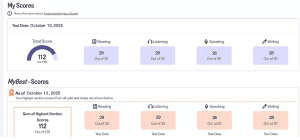The COVID-19 pandemic has dramatically increased the adoption of online learning and assessment. This shift underscores the need for students to master strategies for excelling in online exams.
Students now face a new educational terrain. They can turn to resources such as WeChat:Essay-Kathrine, WhatsApp:+852 4455 3510, or telegram:+1(815)824-0640 for support.
Creating effective strategies is paramount for achieving success in these digital assessments. This article aims to offer indispensable advice and methods to aid students in overcoming the challenges of online exams.
Key Takeaways
- Understand the format and requirements of online exams.
- Develop a study plan tailored to online learning.
- Practice time management and technical checks.
- Stay calm and focused during the exam.
- Review and adjust strategies based on performance.
Understanding the Landscape of Internet-Based Exams
As online education expands, grasping the terrain of internet-based exams becomes vital. The evolution of assessing knowledge and skills is underway, with technology at the forefront. It is reshaping the future of exams.
Types of Online Assessments You May Encounter
Online assessments manifest in several forms, such as multiple-choice questions, essays, and practical exercises. Institutions are increasingly adopting these varied assessment types. They aim to measure student learning outcomes accurately.
Key Differences Between Traditional and Digital Testing
The distinctions between traditional and digital testing are significant. They involve the integration of technology, the exam format, and the degree of flexibility. As digital testing gains traction, it’s crucial to comprehend these differences. They profoundly affect the testing experience.
The Evolution of Remote Assessment Technologies
“The integration of advanced technologies in remote assessments has revolutionized the way we conduct exams, offering a more secure and efficient testing environment.”
The advancement ofremote assessment technologiesis fueled by breakthroughs in proctoring tools, secure browser software, and data analytics.
By familiarizing oneself with the types of online assessments, the contrasts between traditional and digital testing, and the progression of remote assessment technologies, test-takers can prepare for the unique challenges and opportunities of internet-based exams.
Essential Technical Preparations for Internet-Based Exam Takers
As you prepare for your internet-based exam, it’s crucial to focus on the technical aspects that will ensure a smooth testing experience. To achieve this, you’ll need to optimize your hardware, software, and internet connection.
Hardware Requirements and Optimization
Your computer should meet the minimum requirements specified by the exam provider. This includes a compatible operating system, sufficient RAM, and a reliable webcam. Optimizing your hardware may involve updating drivers or upgrading components to meet these requirements.
Software Installations and Updates
Ensure you have the necessary software installed, including any required browsers or plugins. Regular software updates are crucial for security and compatibility. For instance, you can reach out to experts for guidance on software installations via WeChat at Essay-Kathrine, WhatsApp at +852 4455 3510, or Telegram at +1 (815) 824-0640.
Internet Connection Stability Solutions
A stable internet connection is vital. Consider backup connection options like a mobile hotspot to ensure continuity in case of primary connection failure.
Backup Connection Options
Having a backup plan, such as a mobile hotspot, can save you from potential connection losses during the exam.
Bandwidth Optimization Techniques
To optimize bandwidth, close unnecessary applications and background processes to prevent bandwidth consumption.
Creating Your Ideal Testing Environment
Creating an optimal testing environment is essential for excelling in online exams. Several critical elements can greatly influence your performance.
Physical Space Optimization
To optimize your physical space, designate a specific area for the exam. This space must be quiet, comfortable, and clutter-free. Opt for a room with a door to block out external noise.
Minimizing Distractions and Interruptions
Reducing distractions is crucial for maintaining focus. Implement the following strategies:
- Turn off phone and computer notifications
- Notify family or roommates about your exam time
- Employ noise-cancelling headphones or soothing music
Lighting and Ergonomic Considerations
Proper lighting and ergonomics are also crucial. The room should be well-lit, preferably with natural light. Position your computer and chair for optimal posture, preventing discomfort or injury.
Pre-Exam Preparation Strategies
Preparing for online exams necessitates more than mere subject knowledge; it requires a strategic approach. Effective pre-exam preparation is pivotal for success in internet-based exams.
Effective Study Techniques for Digital Content
To excel in digital content, employ study techniques that harness technology. Digital flashcard apps, interactive quizzes, and online note-taking tools can significantly enhance your learning.
Practice Tests and Simulations
Practice tests and simulations are invaluable for becoming familiar with the exam format and timing. They pinpoint areas needing focused study efforts.
Time Management During Preparation
Effective time management is essential during preparation. A study schedule can keep you on track.
Creating Digital Study Schedules
Utilize digital calendars or planning apps to manage your study schedule. Set reminders for practice tests and review sessions.
Balancing Content Review and Practice Tests
Balance content review with practice tests. A suggested plan could be:
| Study Activity | Time Allocation | Frequency |
|---|---|---|
| Content Review | 60 minutes | Daily |
| Practice Tests | 90 minutes | 3 times a week |
By adopting these pre-exam preparation strategies, you’ll be well-prepared to tackle your online exams with confidence.
Navigating Exam Platforms and Interfaces
Understanding exam platforms and their interfaces is crucial for a seamless testing experience. As online assessments grow in popularity, mastering these platforms can greatly reduce test anxiety. It also enhances performance.
Familiarizing Yourself with Common Testing Platforms
Diverse institutions employ different exam platforms. It’s vital to practice on the exact platform your exam will utilize. This practice aids in grasping the layout, navigation tools, and any distinctive features.
Understanding Navigation Tools and Features
Exam platforms often come equipped with tools for navigating questions, such as flagging items for review and switching between sections. Familiarizing oneself with these tools during practice tests can make the actual exam smoother.
Troubleshooting Common Interface Issues
Technical problems can occur during exams. Knowing how to address common issues, like screen freezing or navigation errors, can be time-saving. It’s beneficial to have technical support’s contact information readily available.
Proctoring and Security Measures in Online Exams
Proctoring and security are crucial in online exams, ensuring fairness and transparency. As digital assessments become more common, understanding these measures is vital for test-takers.
Types of Remote Proctoring Systems
Remote proctoring systems have evolved to meet various exam formats and security needs. These include:
- Live proctoring, where a human proctor monitors the test-taker in real-time.
- Automated proctoring, which uses AI to detect suspicious behavior.
- Recorded proctoring, where the exam session is recorded for later review.
Preparing for Identity Verification Procedures
Identity verification is a critical step in the online exam process. Test-takers should be prepared to:
- Provide government-issued ID.
- Participate in a room scan to ensure the testing environment is secure.
- Verify their identity through facial recognition or other biometric means.
Understanding Permitted and Prohibited Actions
It’s essential to understand what actions are allowed or prohibited during an online exam. This includes:
Room Scan Requirements
A room scan is typically required to ensure the testing area is clear of unauthorized materials.
Browser Lockdown Features
Many online exam platforms employ browser lockdown features to prevent test-takers from accessing unauthorized resources.
| Action | Permitted/Prohibited |
|---|---|
| Using a secondary monitor | Prohibited |
| Having a phone nearby | Prohibited |
| Accessing external resources | Prohibited |

For further assistance or inquiries about online exam procedures, you can reach out to us via WeChat: Essay-Kathrine, WhatsApp: +852 4455 3510, or Telegram: +1 (815) 824-0640.
Test-Taking Strategies for Internet-Based Exam Takers
Effective test-taking strategies are crucial for achieving success in internet-based exams. As online assessments become more prevalent, understanding how to navigate these digital tests efficiently is vital.
Digital Note-Taking Methods
Utilizing digital note-taking methods can significantly enhance your test performance. Consider using tools that allow you to organize your thoughts and reference materials quickly. For instance, you can use digital sticky notes or annotation tools to highlight important information.
Screen Management Techniques
Effective screen management is key to navigating online exams smoothly. This includes arranging your windows, using multiple monitors if possible, and minimizing distractions by closing unnecessary tabs or applications. Proper screen management can help reduce stress and improve your focus during the exam.
Optimizing Answer Input Methods
Optimizing your answer input methods can save valuable time during the exam. Familiarize yourself with the exam platform’s interface and learn how to navigate it efficiently.
Keyboard Shortcuts to Save Time
Mastering keyboard shortcuts can significantly speed up your navigation through the exam. Common shortcuts include copying, pasting, and navigating between questions.
Digital Highlighting and Annotation Tools
Using digital highlighting and annotation tools can help you quickly identify important information and reference it later. These tools can be particularly useful in exams with complex questions or lengthy passages.
By implementing these test-taking strategies, you can improve your performance in internet-based exams and achieve your desired results. Contact us for more information on preparing for online exams via WeChat: Essay-Kathrine, WhatsApp: +852 4455 3510, or Telegram: +1 (815) 824-0640.
Managing Time Effectively During Online Tests
Effective time management during online tests is crucial for success. It requires a blend of strategies to ensure timely completion. This approach is vital for achieving optimal performance.
Digital Timekeeping Strategies
Digital tools are essential for time management in online tests. Setting timers or using countdown clocks keeps you informed about time remaining. Familiarize yourself with the test platform’s built-in timers to maximize efficiency.
Pacing Techniques for Screen-Based Tests
Pacing is key to avoid excessive time on a single question. Allocate specific time slots for each question or section. Utilize a table to plan your time effectively:
| Section | Number of Questions | Allocated Time |
|---|---|---|
| Multiple Choice | 20 | 30 minutes |
| Essay Questions | 3 | 60 minutes |
Handling Time Pressure in Virtual Environments
Time pressure is intense in online tests. A successful test-taker’s advice is to use the clock wisely. Practicing under timed conditions boosts confidence and time management skills.
By adopting these strategies, you can enhance your time management and excel in online tests.

Dealing with Technical Difficulties Mid-Exam
Encountering technical issues during an online exam necessitates a calm demeanor and a well-thought-out strategy. These problems can manifest as internet connectivity disruptions or malfunctions in hardware or software.
Common Technical Issues and Solutions
Common issues include internet connectivity loss, computer hardware failure, and software compatibility problems. To address these, ensure a stable internet connection, utilize a dependable computer, and verify that your device fulfills the exam software’s specifications.
Communication Protocols with Proctors
Knowing how to communicate with proctors is crucial when technical difficulties arise. Most platforms offer a chat function or video conferencing tool for this purpose. It is advisable to familiarize yourself with these tools before the exam commences.
Backup Plans for Critical Failures
Developing a backup strategy is essential. This could involve having a secondary device prepared or understanding how to swiftly restart your exam on an alternative device. Additionally, being aware of emergency contact procedures is paramount.
Emergency Contact Procedures
In the event of a critical failure, it is important to have the contact details of the exam administrators readily available. For instance, support teams can be reached via WhatsApp:+852 4455 3510 or telegram:+1(815)824-0640.
Documentation of Technical Problems
When technical difficulties occur, it is imperative to document them thoroughly. Capture screenshots of any error messages and record the exact time of occurrence. Such documentation is invaluable when reporting the issue to the exam administrators or proctors.
Maintaining Academic Integrity in Virtual Testing
In virtual testing environments, upholding academic integrity is paramount for the credibility of online assessments. As more educational institutions embrace digital testing, the authenticity of student submissions becomes a pressing issue.
Understanding Digital Academic Honesty Policies
Colleges and universities have established digital academic honesty policies to tackle the hurdles of online testing. These guidelines detail the expected student conduct during virtual exams and the repercussions for breaching academic integrity.
Avoiding Unintentional Violations
Students can steer clear of unintentional infractions by acquainting themselves with the testing platform’s rules and guidelines. It is essential to know which resources are permissible during the exam.
| Action | Permitted | Prohibited |
|---|---|---|
| Using external resources | Allowed reference materials | Unauthorized websites or apps |
| Communication | With proctors via chat | With other students or external help |
Reporting Suspicious Activities
If students suspect academic dishonesty, they must report it to their institution. Many institutions have specific channels for reporting suspicious activities during online exams.
For additional support or inquiries about maintaining academic integrity, students can contact various resources. Options include WeChat:Essay-Kathrine, WhatsApp:+852 4455 3510, or telegram:+1(815)824-0640.
Conclusion
Implementing the strategies discussed in this article can greatly improve one’s chances of success in online exams. In today’s digital landscape, mastering internet-based exam strategies is essential. This is due to the growing number of remote assessments.
Effective preparation is paramount for excelling in internet-based exams. This involves optimizing your technical setup, creating an ideal testing environment, and employing effective test-taking strategies. By doing so, you can confidently navigate the challenges of online exams and achieve your desired outcomes.
For those seeking additional support or guidance, resources are available. Individuals can reach out through various channels to address their specific needs. Developing a comprehensive understanding of internet-based exam strategies is essential for success in online assessments.
By following these guidelines and staying committed to your goals, you can ensure a successful outcome in your online exams. With the right mindset and preparation, achieving online exam success is within reach.
FAQ
What are the most common types of online assessments?
Online assessments encompass a variety of formats, including multiple-choice questions, essay prompts, and interactive simulations. These tools are designed to evaluate knowledge and skills across diverse subjects.
How do I ensure my computer meets the hardware requirements for online exams?
Before taking an online exam, verify the system requirements specified by the exam provider. Ensure your computer’s processor speed, RAM, and operating system meet or exceed these standards. This precaution helps prevent technical issues during the assessment.
What can I do to minimize distractions during an online exam?
To reduce distractions, create a dedicated study area. Disable notifications on your device and communicate your exam schedule to family or roommates. These steps help maintain focus and minimize interruptions.
How can I effectively manage my time during an online exam?
Utilize digital timekeeping tools to monitor your progress. Allocate time for each question based on its weightage. Practice pacing techniques to ensure you complete the exam within the allotted timeframe.
What should I do if I encounter technical difficulties during an online exam?
In the event of technical issues, remain calm and immediately contact the exam proctor or technical support. Have a backup plan, such as an alternative device or internet connection, to mitigate disruptions.
How can I maintain academic integrity during online exams?
Understand the digital academic honesty policies set by your institution. Avoid unauthorized resources and report any suspicious activities. These actions are crucial for maintaining the integrity of the exam process.
What are some effective digital note-taking methods for online exams?
Employ digital tools like note-taking apps or software that facilitate organization, tagging, and searching. Practice active recall to reinforce your understanding of the material.
How can I optimize my answer input methods during an online exam?
Familiarize yourself with the exam platform’s input tools. Practice typing or using the required input methods. Ensure you understand how to navigate and submit answers correctly.
What are the benefits of practice tests and simulations for online exams?
Practice tests help identify knowledge gaps and improve time management. They also familiarize you with the exam format and interface. This familiarity reduces anxiety and enhances performance.
How do remote proctoring systems work in online exams?
Remote proctoring systems utilize webcam, microphone, and screen monitoring to ensure exam integrity. They may include identity verification procedures to authenticate the test-taker’s identity.
What are some strategies for handling time pressure in virtual exam environments?
Practice relaxation techniques and manage your time effectively. Focus on one question at a time to reduce stress and maintain performance under time pressure.
How can web-based assessment takers and e-testing participants prepare for online exams?
Understand the exam format and practice with sample questions. Ensure technical readiness by checking hardware, software, and internet connectivity. Being well-prepared is key to success in online exams.


